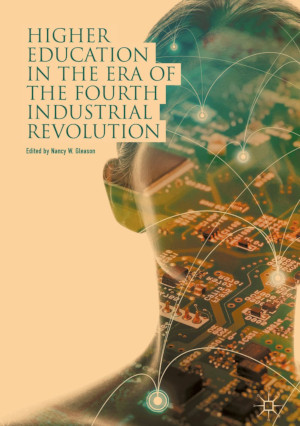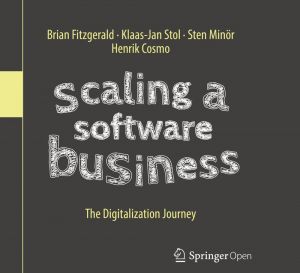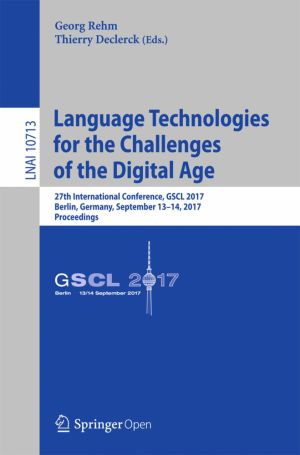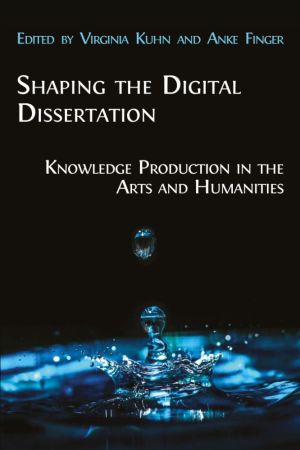Shaping the Digital Dissertation
Knowledge Production in the Arts and Humanities
by Virginia Kuhn, Anke Finger
DescriptionTable of ContentsDetailsHashtagsReport an issue
The volume is arranged in two sections: the first, written by senior scholars, addresses conceptual concerns regarding the direction and assessment of digital dissertations in the broader context of doctoral education. The second section consists of case studies by PhD students whose research resulted in a natively digital dissertation that they have successfully defended. These early-career researchers have been selected to represent a range of disciplines and institutions.
Despite the profound effect of incorporated digital tools on dissertations, the literature concerning them is limited. This volume aims to provide a fresh, up-to-date view on the digital dissertation, considering the newest technological advances. It is especially relevant in the European context where digital dissertations, mostly in arts-based research, are more popular.
Shaping the Digital Dissertation aims to provide insights, precedents and best practices to graduate students, doctoral advisors, institutional agents, and dissertation committees. As digital dissertations have a potential impact on the state of research as a whole, this edited collection will be a useful resource for the wider academic community and anyone interested in the future of doctoral studies. 






Book Description
Digital dissertations have been a part of academic research for years now, yet there are still many questions surrounding their processes. Are interactive dissertations significantly different from their paper-based counterparts? What are the effects of digital projects on doctoral education? How does one choose and defend a digital dissertation? This book explores the wider implications of digital scholarship across institutional, geographic, and disciplinary divides.The volume is arranged in two sections: the first, written by senior scholars, addresses conceptual concerns regarding the direction and assessment of digital dissertations in the broader context of doctoral education. The second section consists of case studies by PhD students whose research resulted in a natively digital dissertation that they have successfully defended. These early-career researchers have been selected to represent a range of disciplines and institutions.
Despite the profound effect of incorporated digital tools on dissertations, the literature concerning them is limited. This volume aims to provide a fresh, up-to-date view on the digital dissertation, considering the newest technological advances. It is especially relevant in the European context where digital dissertations, mostly in arts-based research, are more popular.
Shaping the Digital Dissertation aims to provide insights, precedents and best practices to graduate students, doctoral advisors, institutional agents, and dissertation committees. As digital dissertations have a potential impact on the state of research as a whole, this edited collection will be a useful resource for the wider academic community and anyone interested in the future of doctoral studies.
This open book is licensed under a Creative Commons License (CC BY). You can download Shaping the Digital Dissertation ebook for free in PDF format (88.6 MB).
Table of Contents
Chapter 1
Dissertating in Public
Chapter 2
Publication Models and Open Access
Chapter 3
The Digital Monograph? Key Issues in Evaluation
Chapter 4
#DigiDiss: A Project Exploring Digital Dissertation Policies, Practices and Archiving
Chapter 5
The Gutenberg Galaxy will be Pixelated or How to Think of Digital Scholarship as The Present: An Advisor's Perspective
Chapter 6
Findable, Impactful, Citable, Usable, Sustainable (FICUS): A Heuristic for Digital Publishing
Chapter 7
Navigating Institutions and Fully Embracing the Interdisciplinary Humanities: American Studies and the Digital Dissertation
Chapter 8
MADSpace: A Janus-Faced Digital Companion to a PhD Dissertation in Chinese History
Chapter 9
Publish Less, Communicate More! Reflecting the Potentials and Challenges of a Hybrid Self-Publishing Project
Chapter 10
#SocialDiss: Transforming the Dissertation into Networked Knowledge Production
Chapter 11
Highly Available Dissertations: Open Sourcing Humanities Scholarship
Chapter 12
The Digital Thesis as a Website: SoftPhD.com, from Graphic Design to Online Tools
Chapter 13
Writing a Dissertation with Images, Sounds and Movements: Cinematic Bricolage
Chapter 14
Precarity and Promise: Negotiating Research Ethics and Copyright in a History Dissertation
Chapter 15
Lessons from the Sandbox: Linking Readership, Representation and Reflection in Tactile Paths
Book Details
Title
Shaping the Digital Dissertation
Subject
Education and Teaching
Publisher
Open Book Publishers
Published
2021
Pages
292
Edition
1
Language
English
ISBN13
9781800640986
ISBN10
1800640986
ISBN13 Digital
9781800641006
ISBN10 Digital
1800641001
PDF Size
88.6 MB
License

Related Books

The increasing capacity of digital networks and computing power, together with the resulting connectivity and availability of "big data", are impacting financial systems worldwide with rapidly advancing deep-learning algorithms and distributed ledger technologies. They transform the structure and performance of financial markets, the serv...

This collection examines how higher education responds to the demands of the automation economy and the fourth industrial revolution. Considering significant trends in how people are learning, coupled with the ways in which different higher education institutions and education stakeholders are implementing adaptations, it looks at new programs ...

How does technology impact research practices in the humanities? How does digitisation shape scholarly identity? How do we negotiate trust in the digital realm? What is scholarship, what forms can it take, and how does it acquire authority?
This diverse set of essays demonstrate the importance of asking such questions, bringing together establis...

This collection of essays from world-renowned scholar Hans Walter Gabler contains writings from a decade and a half of retirement spent exploring textual criticism, genetic criticism, and literary criticism. In these sixteen stimulating contributions, he develops theories of textual criticism and editing that are inflected by our advance into the d...

Software has changed the rules of the game. The world talks about the digitalization in industry and society – how the focus has shifted from producing tangible things towards software and services. This trend started many years ago, but is now affecting every company, whether it's a software company or not. There are many companies that hav...

This open access volume constitutes the refereed proceedings of the 27th biennial conference of the German Society for Computational Linguistics and Language Technology, GSCL 2017, held in Berlin, Germany, in September 2017, which focused on language technologies for the digital age. The 16 full papers and 10 short papers included in the proceeding...

